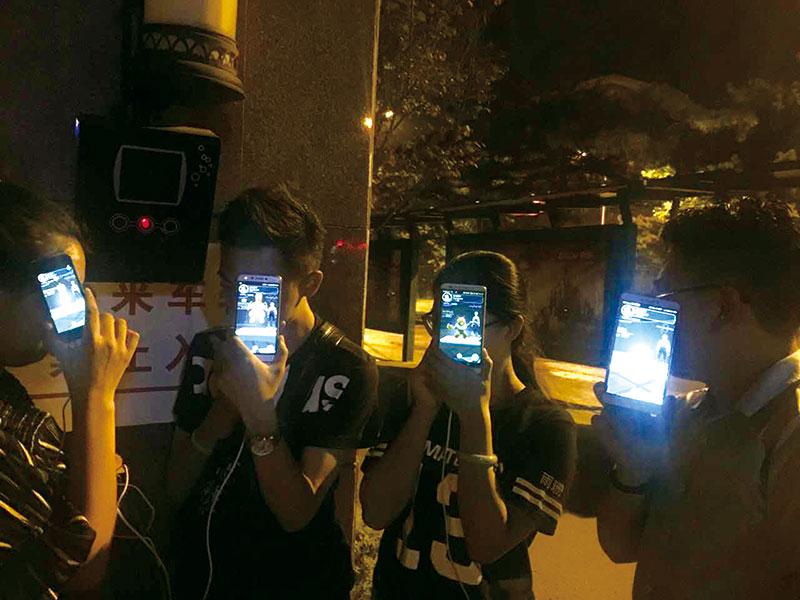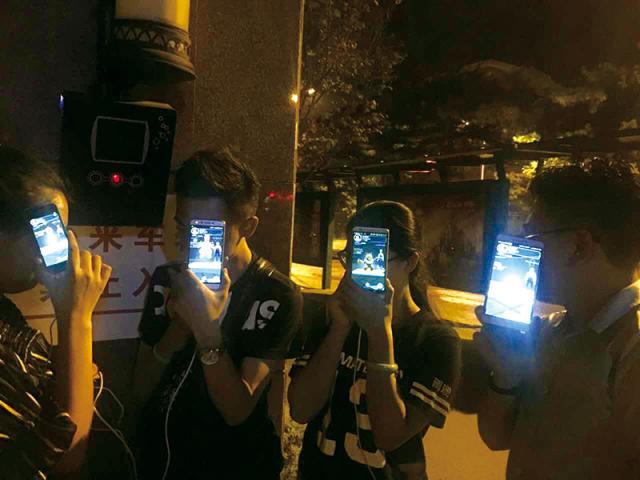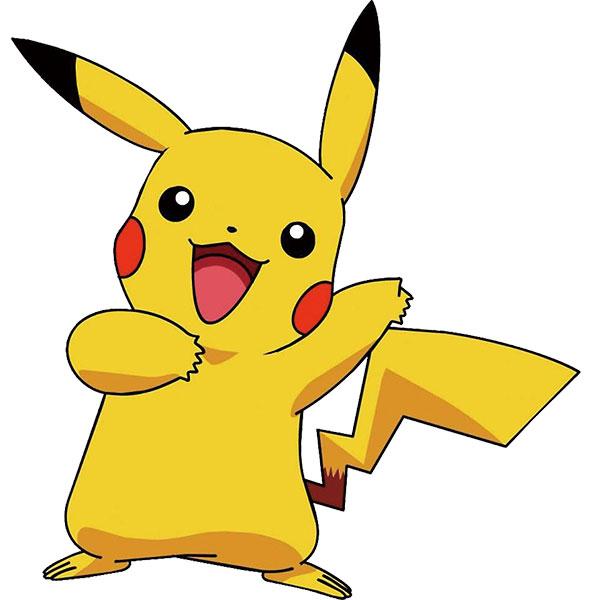On the scorching afternoon of August 26 2016, over 120 people gathered in a vacant lot in front of the Jihang Hotel in Changchun, Jilin Province. Some were in cars, others sitting on the hotel’s steps.
A cry rang out. “Squirtle! Squirtle!” Like a fire being kindled, the crowd came alive. At the other end of the area, a new voice called out “Magikarp! Magikarp!” The crowd hastily ran back.
Fearing an illegal gathering, the police stopped by. “What, exactly, are you doing?” a puzzled patrolman asked the crowd. “Catching Pokémon!” one visitor answered excitedly.
The landmark GPS-based augmented reality game Pokémon Go has already become a global and cultural phenomenon since its release in July. Designed by American video game development company Niantic Labs, the game is based on virtual creatures called Pokémon originally trademarked by Japanese technology giant, Nintendo. Based on the GPS tracking mechanics used by Google Maps, the game displays Pokémon on players’ mobile phone screens using augmented-reality techniques. Gamers are encouraged to explore real places to catch and collect the creatures.
Yet this record-breaking game is still unavailable in the biggest mobile game market, China. The game is inaccessible in most districts of China, but a few regions, including three provinces in Northeast China, a small part of Xinjiang and Tibet, are among the unblocked areas. Only a small number of lucky Chinese users can enjoy the chance to play a game that some say is altering their lives. But enthusiasts in blocked areas are using every means they can to fulfill their desperate yearning for the smash hit game.
Changed Lifestyle
As usual, Teng Fei left home quite early, grabbed a takeaway at a convenient shop, and drove to Changchun’s Beihu Park, a freshly discovered Pokémon hunting ground. Over thirty players were already gathered in an open space circled by four statues in the park, eyes glued to their smartphones.
The 28-year-old works in a communications corporation as a senior engineer. Before Teng started the Pokémon hunt, he says he was a hopelessly indoor nerd, spending all his spare time playing online games at home. But his lifestyle has completely changed since he started to chase Pokémon in the wild.
Teng used to dislike walking at all. But six weeks after downloading Pokémon Go on July 13, 2016, the data on his phone showed he had walked 696.2 km, averaging 15 km per day. Among Chinese gamers, Teng holds a beautiful record – he’s captured 9,526 Pokémon of 133 species, fought 2,132 gym battles against other players, and conquered nine gyms (the virtual spots where users train their Pokémon and conduct gym battles with other players). At the peak of his enthusiasm for the game, Teng went out at 4 AM, walked nearly 30 km, over 47,000 steps, and wore out his legs.
Smartphones and online social networking sites have long been criticized as a cause of
social isolation. Technology has been said to sever interpersonal connections and to hurt people’s connection to reality. But Pokémon Go encourages users to get out of the house, hang out with other players, and explore their cities.
Teng likes to take the No. 80 bus around the city on his Pokémon hunt. On the bus, every minute a new Pokémon (if he’s very lucky, a rare wild one) will appear on the screen. Teng knows the 56 stops of the city by heart now.
“I’ve gotten to know many places that I did not notice before. Now I’m more attached to the city I live in,” said Teng.
“The only reason that this game attracts me is that it is integrated with reality. Players have to get out into the real world to accomplish tasks,” said “Monkey King,” an ambitious Pokémon Go user, who has caught 142 species of Pokémon and taken over 22 gyms.
“Monkey King” joined the Changchun Pokémon gathering on August 26, though he came a bit late. “I could feel the earth trembling when they ran!” he joked, remembering the crowds running after Pokémon.
Pokémon No?
After the game first launched in the US, Australia and New Zealand on 6 July, 2016, it generated an astonishing US$206.5 million in its first month. The game was downloaded over 50 million times in 19 days after its initial launch.
But as Bloomberg reports, the game is now experiencing a decline. “Data from Sensor Tower, SurveyMonkey, and Apptopia show that Pokémon Go’s daily active users, downloads, engagement, and time spent on the app per day are all well off their peaks and on a downward trend,” Bloomberg reported. But China’s market is huge and hungry. Desperate Chinese fans are searching for loopholes that will let them play.
Changchun is one such spot. The meeting there was organized by “Blue Sword,” a gamer who established one of the first Chinese Pokémon groups. By mid-July 2016, just two weeks after the game’s release, it had grown from a dozen members to over
500.
But not every Chinese player gets out to the open spots to find wild Pokémon. Many
spoof their GPS information to an unblocked location, such as Xinjiang, Northeast China or foreign countries. This is called “flying the plane” in gamer slang, and the players are known as “flyers.” Flyers can capture Pokémon and participate in gym battles, and the only difference between them and normal players is that they do not have to make a real-life appearance.
Local gamers don’t hide their hatred of flyers. Monkey King says their behavior, snatching up high-level Pokémon without even making the effort to travel, is “extremely immoral.”
“Sunny,” a gamer from Xinjiang, harbors the same anger toward “flyers.” “It’s unfair. Local players walk for whole days in parks, soaked with sweat, bitten by mosquitos, but flyers take over our gyms and snatch at our Pokémon without any effort,” said Sunny.
“I know cheating is wrong. I know it unfairly steals others’ fun, and also puts strain on services. But if I don’t fly the plane, I don’t have any chance of playing the game,” Wang Tuotuo, a flyer who lives in a blocked area, told our reporter in a helpless tone.
One of the main reasons for the games’ unavailability in China lies in its ties to Google. The game is tightly integrated with Google Maps and Google Services. But Google Services have been officially blocked by China since November 2012. With no Google Maps data available for most parts of China, it’s a barren land with no Pokestops or gyms.
Another hindrance lies in security concerns. Some Chinese netizens fear that US and Japan could work out where Chinese military bases are by checking where Chinese users cannot capture Pokémon. Chinese location services such as Baidu Maps regularly distort the data around sensitive areas out of espionage concerns.
To fill the monstrous void in the local market, a knock-off, City Monster Go, has been developed. The game is location-based, allowing users to catch Pokémon-like creatures, though it does not use augmented reality.
Despite the popularity of the knockoff, most players are still desperately waiting for the official release of Pokémon Go.
“This market is a huge piece of meat. If Niantic wants to feast on it, they must establish a server in China. It’s China and South Korea [where the game is also blocked] where gamers want it most,” one frustrated gamer wrote online.

 Old Version
Old Version

